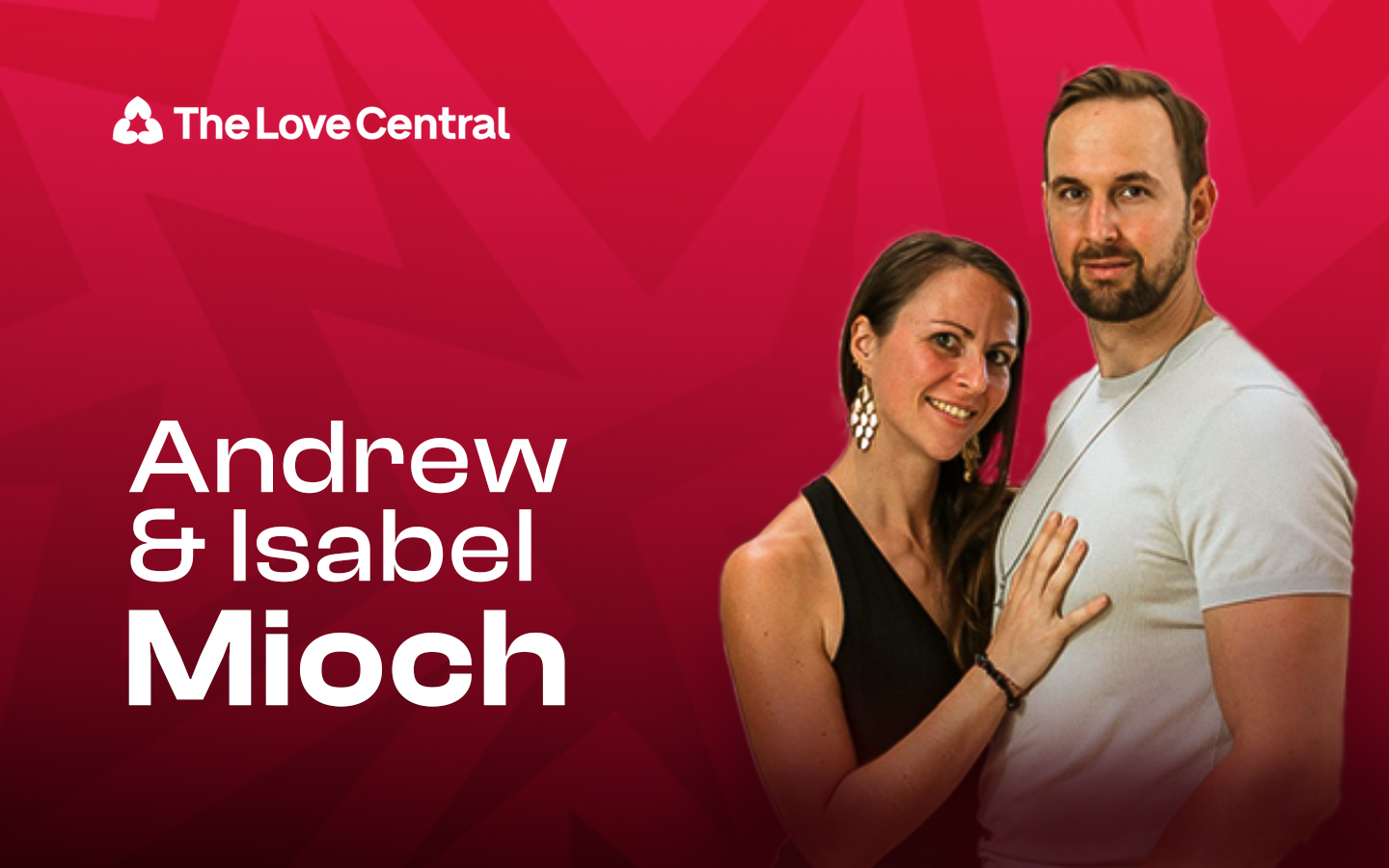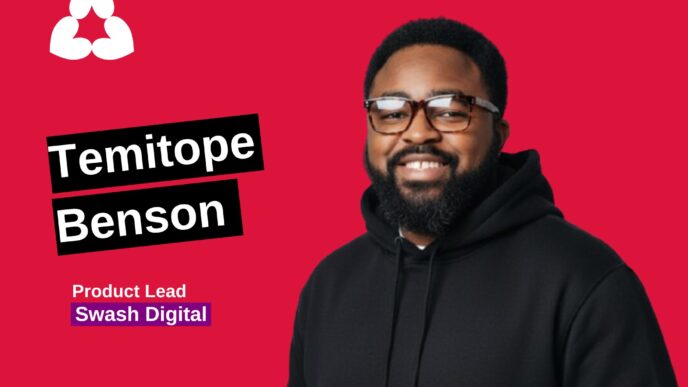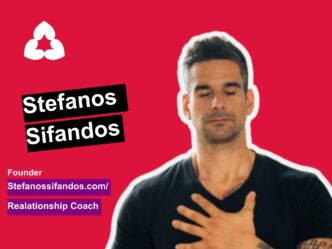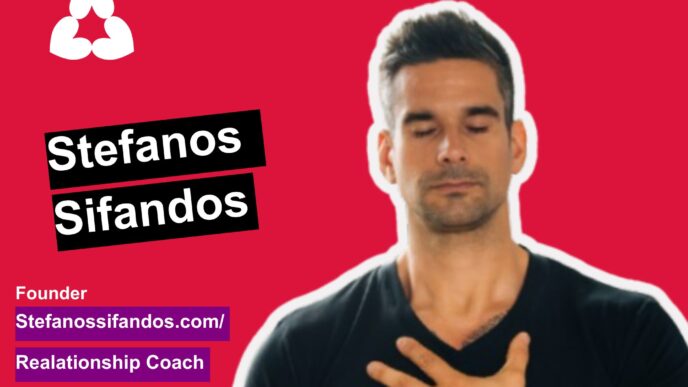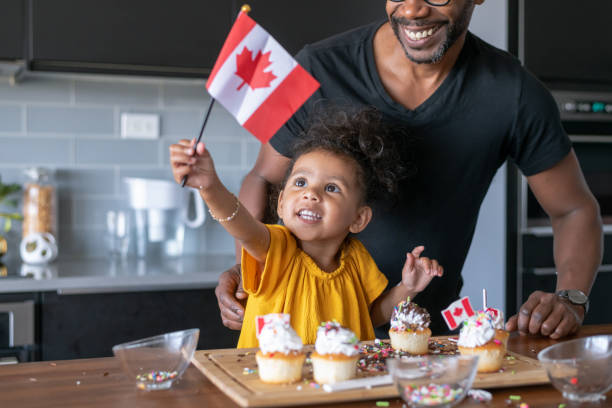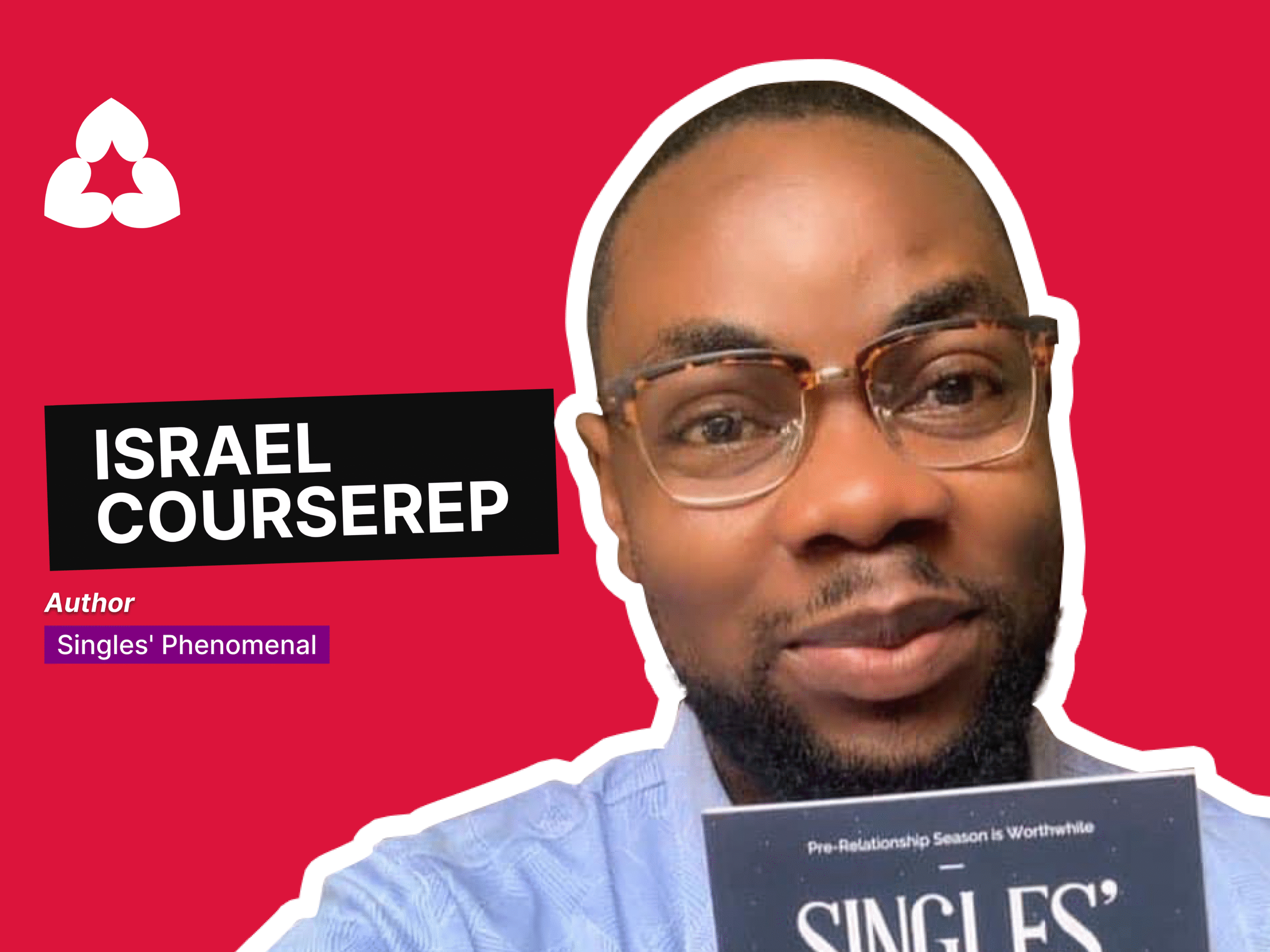There’s something sacred about traditional Yoruba weddings. The language, the reverence, the symbolism. And while the music and beauty often take the spotlight, it’s the Alaga who anchors the ceremony in meaning. In that moment, she is not just a host. She is a spiritual guide, a storyteller, and a cultural educator.
For many young Africans in the diaspora, this is the first time they’re truly encountering the richness of Yoruba weddings. And often, it’s the Alaga who becomes their first teacher; not through lectures, but through presence, poetry, and performance.
In this interview, The Love Central spoke with Heritage Oluwaseyi Ola, popularly known as Alaga Toh Bam. She is one of the vibrant voices preserving the richness of Yoruba culture through traditional weddings. We talked about her journey, her calling, and the deeper layers many people, especially in the diaspora, might not even realize live within the work she does.
To start, please introduce yourself to our audience. Who is Alaga Toh Bam, and how would you describe the work that you do?
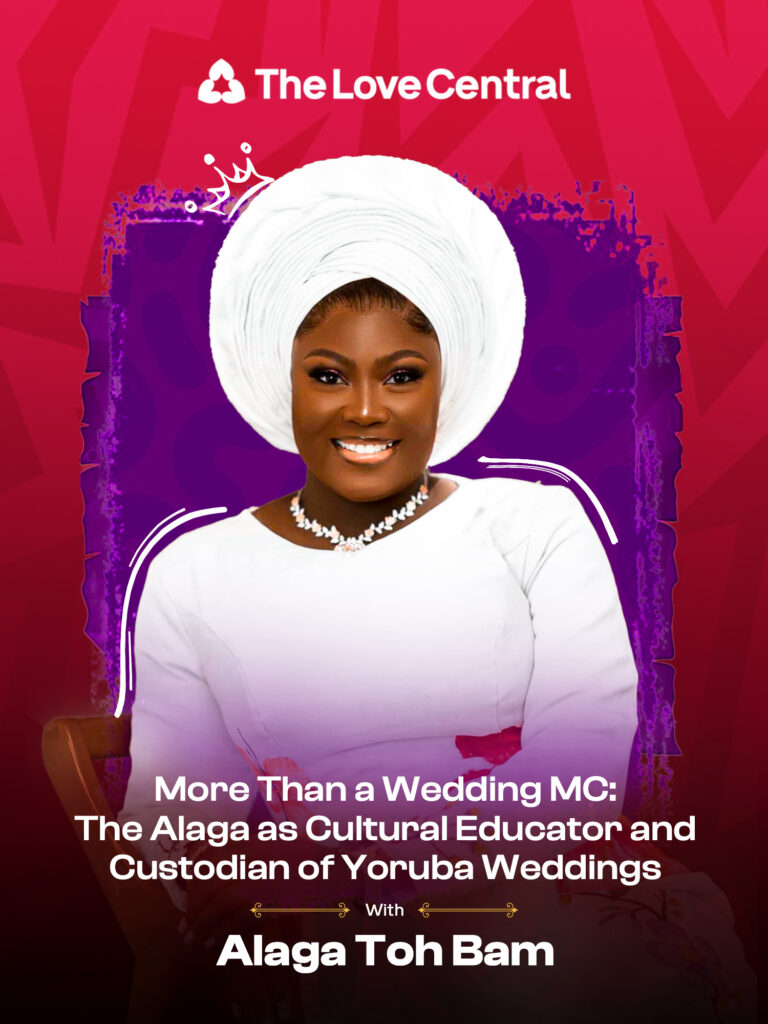
My name is Heritage Oluwaseyi Ola, and I’m the Creative Director of Alaga Toh Bam Events. I’m a Traditional Wedding Compère. In Yoruba culture, we call it Alaga Iduro and Ijoko.
I also curate beautiful eru iyawo setups and designs. I sell Exotic and up-to-standard Engagement letters (Proposal and Acceptance letters) and I’m deeply committed to training others in this craft. Since I started, I’ve trained over 35 people to become professional Alagas because preserving tradition means being intentional about passing it on.
Let’s go back to the beginning. How did your journey as an Alaga start, and what shaped your early approach to the work?
I’ve always been outspoken and naturally gifted at speaking. Back in school—primary, secondary, and university—I was involved in drama, literary and debating societies, pageantry, and I hosted department and faculty dinners at the University of Ibadan. At the time, I didn’t even realize that all of it was quietly preparing me for this path.
A month before my graduation, I decided to pick up a new skill. That’s how I landed on the Alaga craft. I trained and started, but it didn’t take off right away. There was a lot I didn’t know, and I felt discouraged. So I parked the skill.
Later on, I met someone who saw potential in me and encouraged me to try again. I enrolled in a mentoring class, gave myself fully to the process for one year, and little by little, the jobs started coming in. I started off as “The Exquisite Compère,” then “The Exquisite Alaga,” and over time, I became the Alaga Toh Bam everyone now calls me.
In the beginning, I had the passion and presence, but I lacked structure and depth. That one-year mentorship changed everything. It gave me grounding, not just in performance, but in understanding the true weight of what we do as Alagas.
We don’t just entertain people. We preserve culture. We teach. We lead spiritual moments. That clarity helped me step into the fullness of the role with grace and intention.
For those who may not fully understand, especially in the diaspora, what exactly does an Alaga do? And what would you say is the heart of your role?
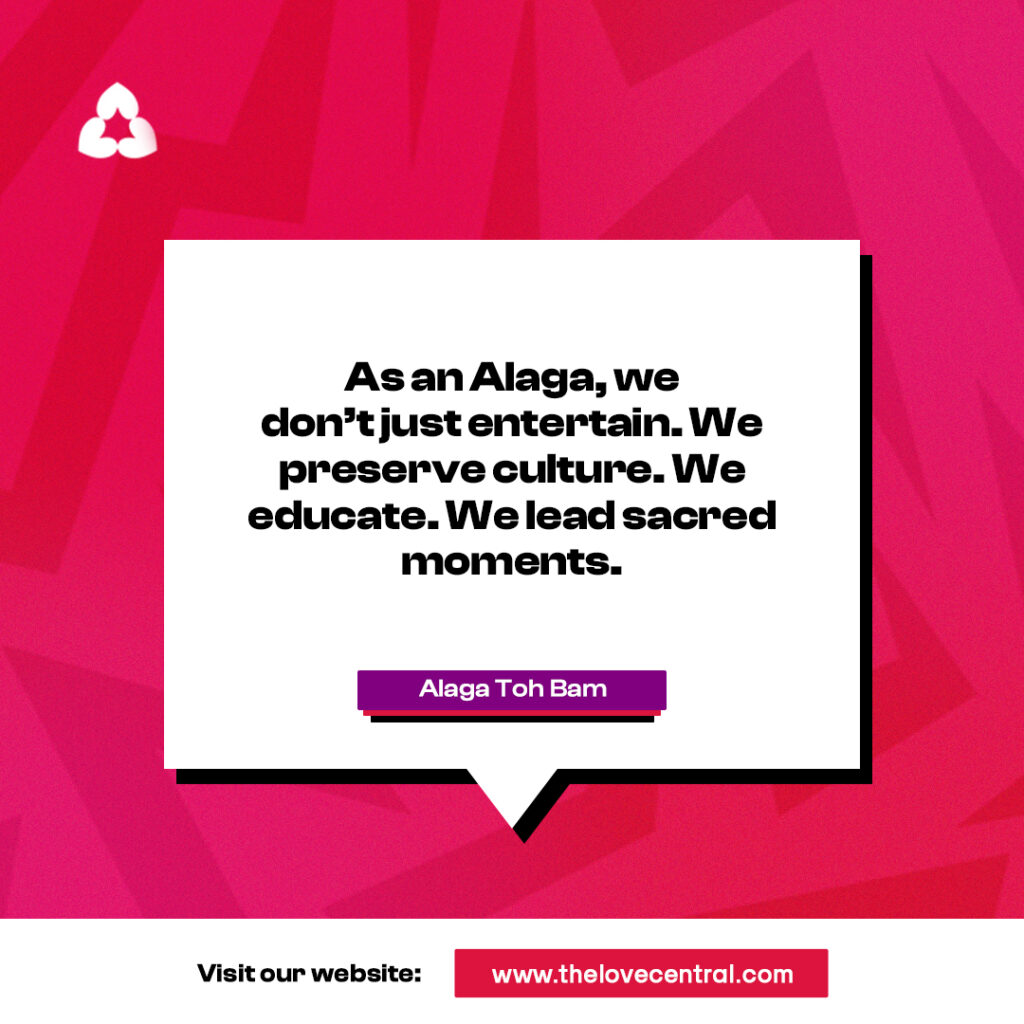
An Alaga is a master of ceremonies in traditional Yoruba weddings. But it’s more than just anchoring. We are culture keepers.
We bring in traditional songs, rituals, proverbs, blessings, and customs that many families haven’t even heard in years. We guide the flow of events while making sure every step is meaningful. Our role is rich in symbolism. Whether it’s the exchange of gifts, the tying of knots, or the prostration of the groom, everything we do carries a spiritual or cultural message.
We also act as a bridge. We connect the older generation, who understands these traditions, with the younger ones, who are just learning. And even though we’re rooted in culture, we adapt to modern times so younger couples can stay connected. I always say we’re not just Alagas. We are storytellers. We are carriers of joy. And we’re spreading that joy one family at a time.
What values or cultural lessons do you believe Yoruba traditional weddings are designed to teach about identity, family, and respect?
Yoruba weddings help us remember who we are. Our identity shines through every part of it. In fact, traditional weddings have become the highlight of weddings these days. People from other cultures even borrow our styles.
Family plays a central role. No Yoruba wedding happens without the presence and involvement of parents, relatives, and community. It reinforces that we are communal people.
And respect is everything. That’s why they call us the “E ku” tribe. We have greetings for everything. That same culture of honor plays out at weddings. The groom prostrates to show reverence for the bride’s family and humbles himself to ask for her hand, saying, “Mo bẹ́bẹ́ fẹ́.” The bride kneels to receive blessings from her parents and in-laws, and even for her husband. These aren’t just acts. They shape how we see marriage.
You use language, music, prayer, and symbolism in powerful ways. What role do these elements play in preserving Yoruba culture through weddings?
They connect people to memory. When we speak Yoruba and use idioms at weddings, it makes people feel seen. It reminds them of home.
Traditional music creates a certain atmosphere. It sets the tone. I remember that before I became an Alaga, there were many songs I didn’t know. During my school days, I once had an assignment where I had to get my Oríkì — my family praise poetry. I had to call my dad, and he went to my grandmother to get it for me. Now, it’s become common for couples to request their Oríkì as part of their ceremony.
The work of an Alaga is like a ministry. We don’t just speak. We pray. When we ask a mother to touch her daughter’s head and pray, she prays “Kò ní fi orí ọmọ mi ṣe ibi” — that her child’s head will not be used for evil. When she touches her eyes, she prays “Kò ní rí ibi” — that her eyes will not see evil. When she touches her mouth, she prays that her daughter will not speak evil or have her words used against her. When she touches her breasts, she prays that she will breastfeed her own children. When it’s her stomach, it’s a prayer for fruitfulness. And when she touches her back, she prays that she will carry her children on her back. Each of these gestures is deeply symbolic and carries layers of blessing.
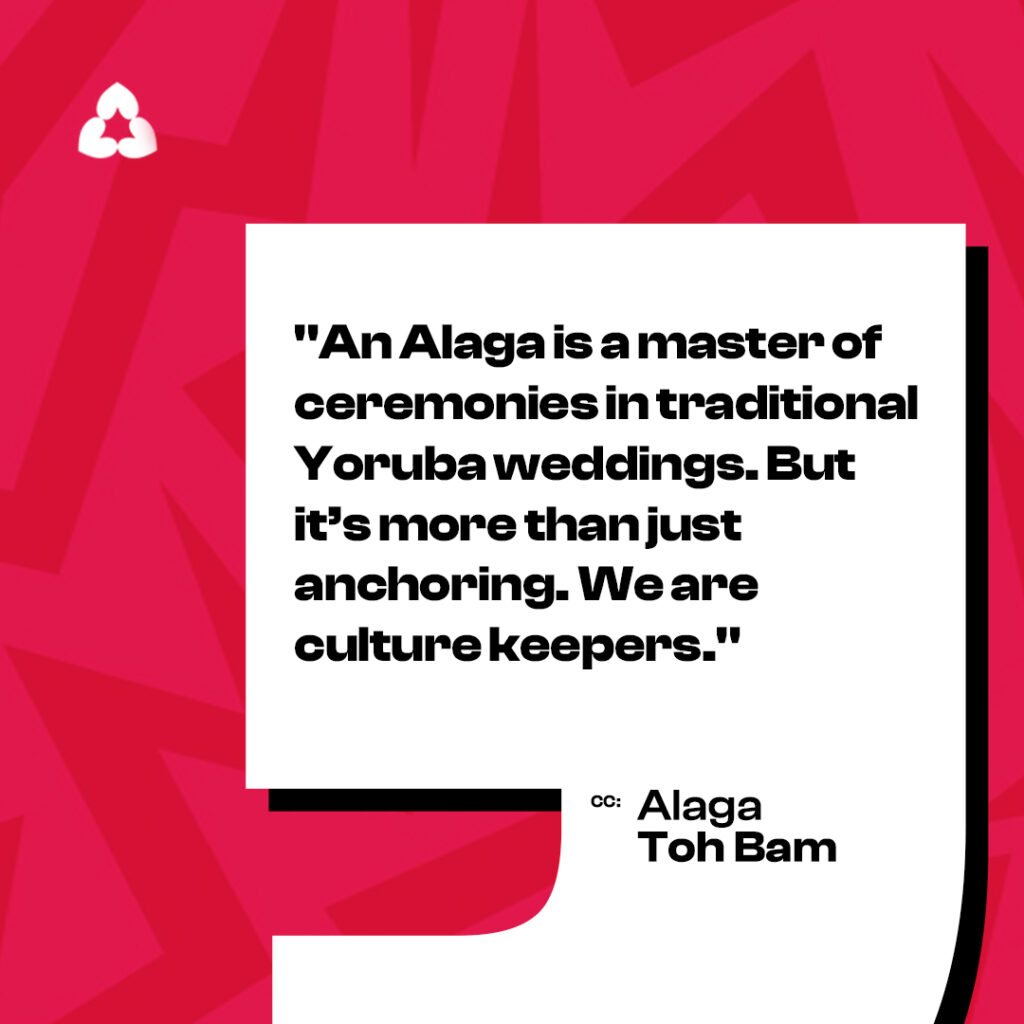
There’s also meaning in the items used for prayer. It’s important to note that we don’t break kolanuts like the Igbos do. In Yoruba weddings, we use the items brought by the groom’s family as listed in the eri dànọ like palm oil, vegetable oil, rice, bitter kola (orogbo), coconut, and pineapple to pray.
Kolanut is obi in Yoruba, and we pray “Obi kú ”dànù”—that death will be far from their path. Bitter kola is orogbo, and symbolically it means longevity—that they will live long, stay strong, and grow old enough to carry their grandchildren. Coconut is mysterious because no one knows how the water gets inside. We use it to pray against external interference. Pineapple has a crown, a thorny body, and stands upright without support. We pray that her husband will always stand as her crown, that God will shield her from evil, and that her home will not fall apart.
These things are deeply spiritual. When young people attend Yoruba weddings and see all of this, something awakens in them. They begin to crave it. They start seeing the beauty and power in our traditions.
If you’re curious about the values and traditions you want to carry into your own future marriage, you can explore them through the Love Pantry Assessment Quiz. It’s a short self-discovery tool designed to help you reflect on what truly matters to you in love, relationships, and family life.
With the rise of intercultural marriages and destination weddings, have you noticed shifts in how Yoruba weddings are done, especially outside Nigeria? How do you adapt while still holding on to the core of tradition?
Yes, there’s been a lot of blending in recent times. More inter-tribal and inter-racial weddings. And as an Alaga, you have to do your due diligence. You need to know who you’re representing and also learn about the other culture involved.
Language is a big part of this. I make sure to translate every Yoruba word and action into English so that everyone feels included.
For example, earlier this year, I anchored a wedding where the bride was Igbo and the groom was a Yoruba Muslim. The planner wanted to have the Igbo, Yoruba, and reception parts all on the same day. I reached out to the male moderator from the bride’s side and suggested we blend both cultures together for the sake of time and flow. We compromised, collaborated, and everything turned out great.
So flexibility is important. You can’t be rigid. You must understand both cultures and work together to create a memorable celebration.
Do you see yourself as a cultural custodian or educator in this work? What sense of responsibility do you feel, especially when younger generations may be encountering these traditions for the first time through you?
Yes, we are cultural custodians. We pass the norm from one generation to another. I train people every year (at least ten students) because this work needs to be preserved.
For younger people, we make it fun and easy to connect with. While I’m anchoring, I explain the “why” behind what I’m doing so it doesn’t just fly over their heads. When I see a younger cousin or niece joyfully reading the proposal letter at a wedding, I know something has been planted in them. It becomes a moment of pride.
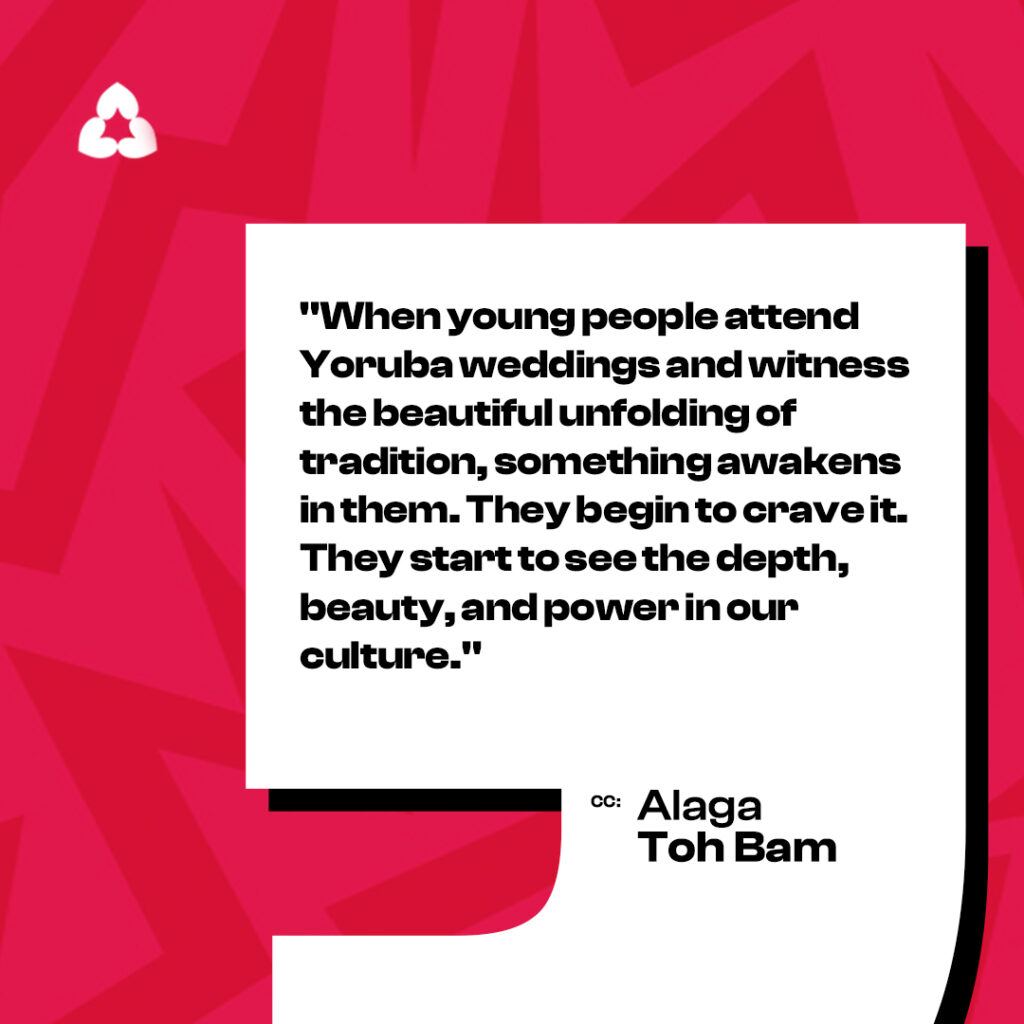
Finally, what message would you love to leave with young Africans in the diaspora about honouring their roots, embracing their culture, and keeping Yoruba traditions alive?
There’s no place that feels quite like home. And even while you’re building a life abroad, don’t lose touch with where you come from.
Teach your children your language. Celebrate our African fabrics and wear them with pride. Honour our arts, crafts, and traditions. And if you can, come home. Come reconnect. Come feel the warmth and beauty of your roots.
As the Yoruba say, “Ilé là bá mọ̀, ilé là bá padà sí,” meaning that home is where we start from, and home is where we return.
If you’d like to explore the values and principles you’d want to take into marriage, whether traditional or modern, try the Love Pantry Assessment Quiz. It’s a thoughtful way to reconnect with your vision for love and family.



